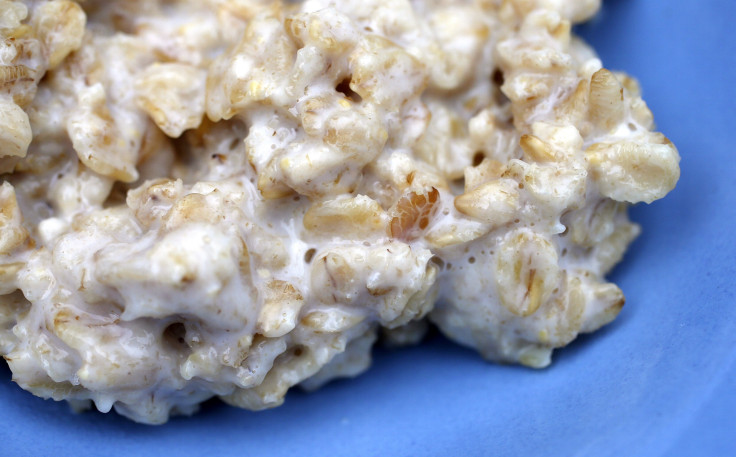Oat Breakfast Cereals May Not Be As Healthy As Previously Believed

Though oats are touted to be good for the heart, it may not be as healthy as previously believed, a new study finds.
The study was conducted by researchers from the American Chemical Society. Researchers noted that some oat-based breakfast cereals in the U.S. contain a mold-related toxin called ochratoxin A (OTA) that's been linked to kidney cancer in animal studies. The findings could have implications for consumer health.
OTA is a common toxic product released by different types of molds in the world. This toxin can also be found in food items like pork, dried fruits, wine, coffee and other products. Though very few studies have looked into how this toxin can affect human health, the International Agency for Research on Cancer, which is part of the World Health Organisation, classifies it as a possible human carcinogen.
For the study, researchers tested close to 500 samples of corn-, rice-, wheat- and oat-based breakfast cereals purchased from U.S. stores over two years. Researchers found that though OTA levels in most samples were below the European threshold, concentrations exceeded the EU standard in 8 percent of oat-based breakfast cereal samples.
These findings highlight that necessity of reviewing the health benefits of oats and how it has hazardous consequences. The researchers noted that oat production, storage and processing need careful review to better protect consumer health.
Oats is known to reduce blood cholesterol levels and blood glucose levels. In 1997, the U.S Food and Drug Administration (FDA) approved a health claim for β-glucan soluble fiber from oats for reducing blood cholesterol levels and risk of coronary heart disease. Additionally, in 2011, the European Commission allowed the health claim which stated that "Oat β-glucan has been shown to lower/reduce blood cholesterol. High cholesterol is a risk factor in the development of coronary heart disease.”
Findings of the current study were published online in ACS' Journal of Agricultural and Food Chemistry. The project was funded by the U.S. Department of Agriculture National Institute of Food and Agriculture.
To contact writer, email: sammygoodwin27@gmail.com




















